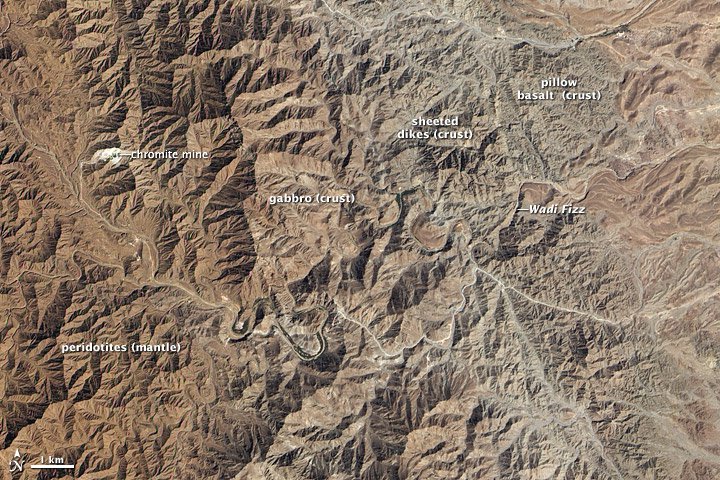
Nov. 20, 2017
Research Highlight
The Biogenergetics of Low-Temperature Serpentinization

The mountains of northeastern Oman, known to geologists as the Semail (or Samail) ophiolite.Image credit: NASA Earth Observatory.
A process called ‘serpentinization,’ where water reacts with rock, can provide chemical energy for microorganisms. Scientists studying this process at a site in Oman, where mantle rocks are exposed at the surface, are providing new information about geochemical bioenergetics during low-temperature serpentinization, and the potential role of this process in supporting microbial communities. Serpentinization could be important for microbial communities both at the surface of the Earth and deep in the subsurface, and it might provide insight into similar processes that microorganisms could use to survive on other worlds.
The paper, “Geochemical bioenergetics during low-temperature serpentinization: An example from the Samail ophiolite, Sultanate of Oman,” was published in the Journal of Geophysical Research: Biogeosciences. The work was supported by NASA Astrobiology through the Exobiology & Evolutionary Biology Program.